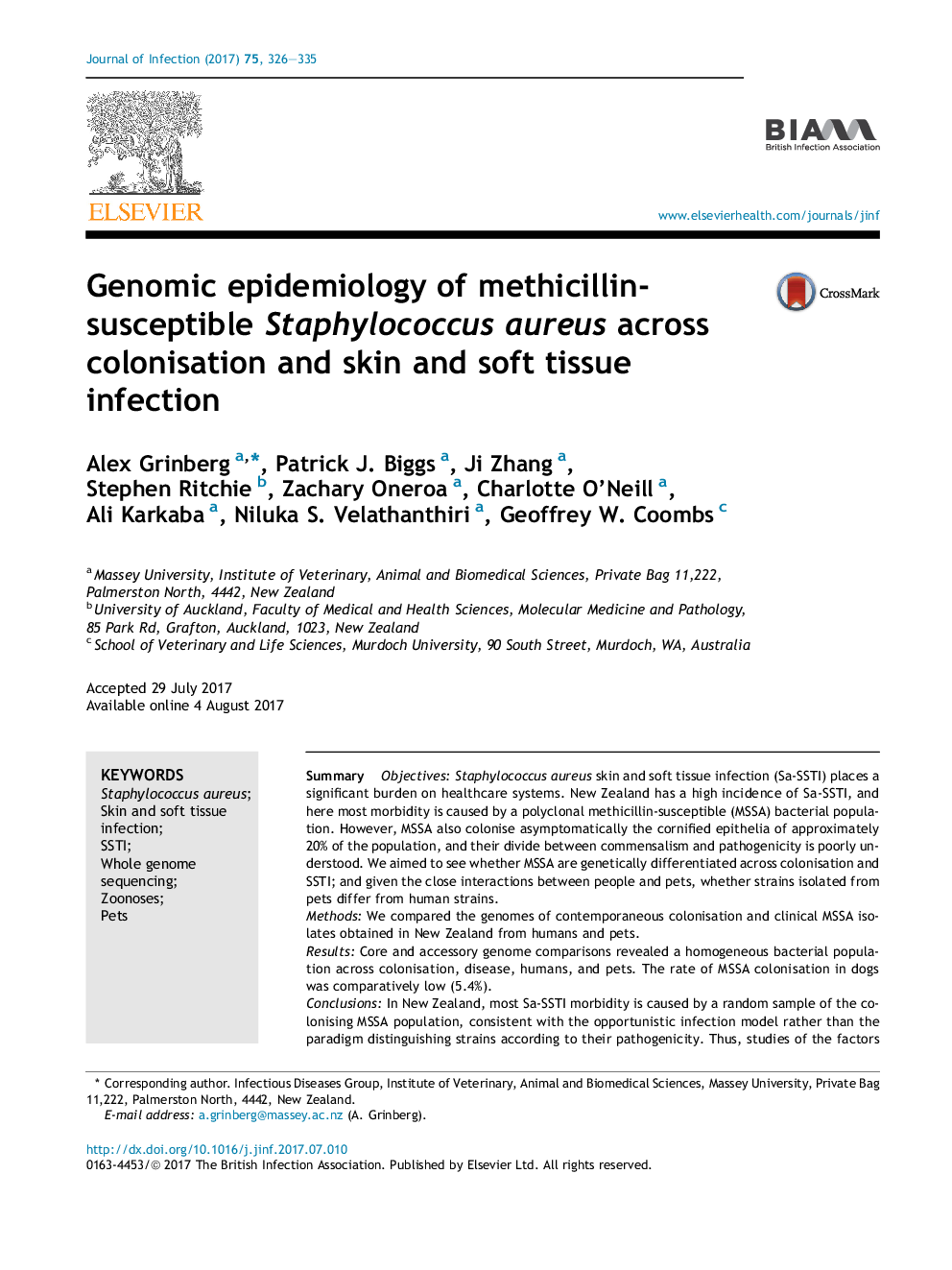| کد مقاله | کد نشریه | سال انتشار | مقاله انگلیسی | نسخه تمام متن |
|---|---|---|---|---|
| 5668579 | 1592415 | 2017 | 10 صفحه PDF | دانلود رایگان |
- We compared the genomes of MSSA across colonisation and disease, humans, and pets.
- Skin and soft tissue infection is caused by a random sample of the colonising MSSA.
- This result supports the opportunistic model of infection.
- Pets pose low zoonotic risk.
SummaryObjectivesStaphylococcus aureus skin and soft tissue infection (Sa-SSTI) places a significant burden on healthcare systems. New Zealand has a high incidence of Sa-SSTI, and here most morbidity is caused by a polyclonal methicillin-susceptible (MSSA) bacterial population. However, MSSA also colonise asymptomatically the cornified epithelia of approximately 20% of the population, and their divide between commensalism and pathogenicity is poorly understood. We aimed to see whether MSSA are genetically differentiated across colonisation and SSTI; and given the close interactions between people and pets, whether strains isolated from pets differ from human strains.MethodsWe compared the genomes of contemporaneous colonisation and clinical MSSA isolates obtained in New Zealand from humans and pets.ResultsCore and accessory genome comparisons revealed a homogeneous bacterial population across colonisation, disease, humans, and pets. The rate of MSSA colonisation in dogs was comparatively low (5.4%).ConclusionsIn New Zealand, most Sa-SSTI morbidity is caused by a random sample of the colonising MSSA population, consistent with the opportunistic infection model rather than the paradigm distinguishing strains according to their pathogenicity. Thus, studies of the factors determining colonisation and immune-escape may be more beneficial than comparative virulence studies. Contact with house-hold pets may pose low zoonotic risk.
Journal: Journal of Infection - Volume 75, Issue 4, October 2017, Pages 326-335
